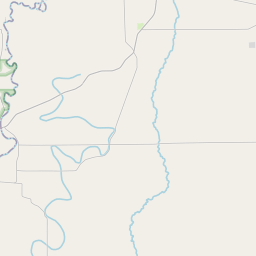Transylvania Mounds
Historical marker location:
Transylvania, Louisiana
( Marker is at the intersection of State Highway 581 and Mound Road, on the right when traveling east on State Highway 581.)







© OpenStreetMap contributors
Ancient Mounds Trail
Loading...
Searching for other points of interest within 3 miles of this location.Hurricane Katrina, which struck Louisiana in 2005, was one of the deadliest and costliest hurricanes in U.S. history. The storm caused widespread destruction in New Orleans and other parts of the state, and its aftermath highlighted issues of poverty, race, and government response in the United States.
About East Carroll Parish
East Carroll Parish Timeline
East Carroll Parish is located in northeastern Louisiana, bordering the Mississippi River to the east. The region was originally inhabited by Native American tribes, including the Choctaw and Quapaw. In the early 19th century, the area attracted French and Spanish settlers who established small farms and plantations.
The creation of East Carroll Parish can be traced back to 1877 when a portion of Carroll Parish was divided to form a new parish. The area quickly became known for its fertile soil and ideal climate for agriculture. The Mississippi River played a crucial role in the region's history, serving as a major transportation route for goods and people.
The economy of East Carroll Parish primarily relied on agriculture, with cotton being the main cash crop. The prosperous plantations attracted many wealthy landowners, resulting in a large enslaved population in the antebellum era. Following the American Civil War, the decline of the plantation system and the abolition of slavery brought significant changes to the region's economy and society.
In the 20th century, East Carroll Parish faced numerous challenges, including the Great Depression and declining agricultural prices. Over time, there was a shift towards mechanization and technology in farming practices, leading to a decrease in the number of agricultural workers. Despite these challenges, the community has persevered and continued to adapt to changing times, promoting economic diversification and focusing on other industries such as timber and recreational tourism. Today, East Carroll Parish is characterized by its rich history, natural beauty, and a strong sense of community.
The creation of East Carroll Parish can be traced back to 1877 when a portion of Carroll Parish was divided to form a new parish. The area quickly became known for its fertile soil and ideal climate for agriculture. The Mississippi River played a crucial role in the region's history, serving as a major transportation route for goods and people.
The economy of East Carroll Parish primarily relied on agriculture, with cotton being the main cash crop. The prosperous plantations attracted many wealthy landowners, resulting in a large enslaved population in the antebellum era. Following the American Civil War, the decline of the plantation system and the abolition of slavery brought significant changes to the region's economy and society.
In the 20th century, East Carroll Parish faced numerous challenges, including the Great Depression and declining agricultural prices. Over time, there was a shift towards mechanization and technology in farming practices, leading to a decrease in the number of agricultural workers. Despite these challenges, the community has persevered and continued to adapt to changing times, promoting economic diversification and focusing on other industries such as timber and recreational tourism. Today, East Carroll Parish is characterized by its rich history, natural beauty, and a strong sense of community.
East Carroll Parish Timeline
This timeline provides a glimpse into the major events and milestones that have shaped the history of East Carroll Parish, Louisiana.
- 1814 - The area that is now East Carroll Parish is transferred from the Territory of Orleans to the Territory of Mississippi.
- 1828 - Carroll Parish is established, named after Charles Carroll of Carrollton.
- 1832 - Carroll Parish is divided into two parishes, with the eastern portion becoming East Carroll Parish.
- 1871 - The village of Lake Providence is incorporated.
- 1892 - East Carroll Parish's courthouse, located in Lake Providence, burns down.
- 1894 - The current East Carroll Parish courthouse is built in Lake Providence.
- 1920s - The parish experiences economic growth due to the expansion of the timber and cotton industries.
- 1947 - The first levee is constructed along the Mississippi River to protect the parish from flooding.
- 1992 - A major flood occurs, causing significant damage to the parish.
- 2010 - The population of East Carroll Parish is recorded at 7,759.